Search Results
Showing results 21 to 30 of 30

Reading DNA
Source Institutions
In this activity, learners use edible models of the DNA molecule to transcribe an mRNA sequence, and then translate it into a protein.

DNA and Histone Model
Source Institutions
In this activity, learners construct a 3-D paper model depicting how histone, acetyl and methyl molecules control access to DNA and affect gene DNA expression.
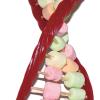
Have Your DNA and Eat It Too
Source Institutions
In this activity, learners build edible models of DNA, while learning basic DNA structure and the rules of base pairing.

Onion DNA Extraction
Source Institutions
This laboratory exercise is designed to show learners how DNA can easily be extracted from onion cells using simple materials.
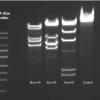
Restriction Enzyme Digestion: How does it work? Why is it useful?
Source Institutions
In this activity related to plant biotechnology, learners use restriction enzymes to cut up DNA from a virus called Bacteriophage λ, a process known as restriction digestion.
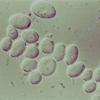
Yeast DNA Extraction
Source Institutions
This laboratory exercise is designed to show learners how DNA can easily be extracted from yeast using simple materials.
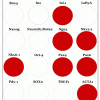
Microarrays and Stem Cells
Source Institutions
In this activity, learners use microarray technology to determine which genes are turned on and off at various points in the differentiation of pluripotent stem cells on their way to becoming pancreat
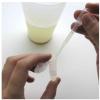
Exploring Structures: DNA
Source Institutions
In this activity, learners create a necklace of wheat germ DNA. Learners add alcohol to wheat germ so that the DNA clumps together.
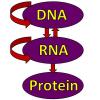
Protein Factory
Source Institutions
In this activity, learners take on the role of various parts of the cell in order to model the process of protein synthesis.
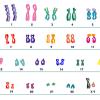
Born of Blood: Craft Stick Chromosomes
Source Institutions
In this activity, learners work in groups to match craft sticks that represent chromosomes. Learners must define critical attributes of their chromosomes as they look for matching chromosomes.
